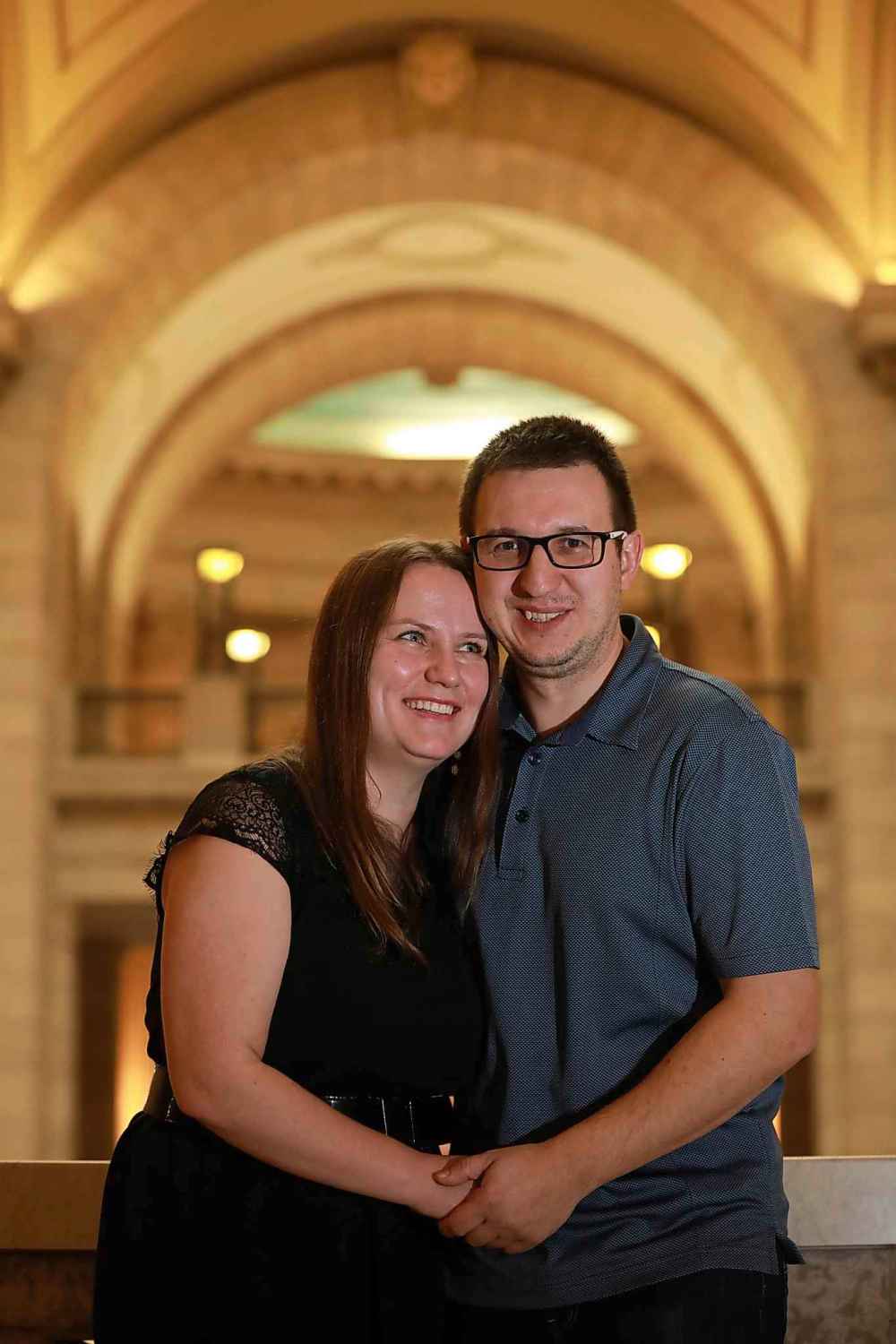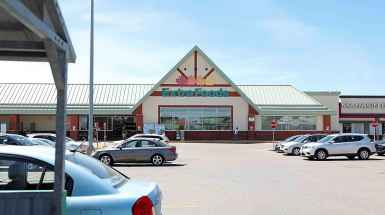Nominee program changed face of Manitoba
Read this article for free:
or
Already have an account? Log in here »
To continue reading, please subscribe:
Monthly Digital Subscription
$0 for the first 4 weeks*
- Enjoy unlimited reading on winnipegfreepress.com
- Read the E-Edition, our digital replica newspaper
- Access News Break, our award-winning app
- Play interactive puzzles
*No charge for 4 weeks then price increases to the regular rate of $19.00 plus GST every four weeks. Offer available to new and qualified returning subscribers only. Cancel any time.
Monthly Digital Subscription
$4.75/week*
- Enjoy unlimited reading on winnipegfreepress.com
- Read the E-Edition, our digital replica newspaper
- Access News Break, our award-winning app
- Play interactive puzzles
*Billed as $19 plus GST every four weeks. Cancel any time.
To continue reading, please subscribe:
Add Free Press access to your Brandon Sun subscription for only an additional
$1 for the first 4 weeks*
*Your next subscription payment will increase by $1.00 and you will be charged $16.99 plus GST for four weeks. After four weeks, your payment will increase to $23.99 plus GST every four weeks.
Read unlimited articles for free today:
or
Already have an account? Log in here »
Hey there, time traveller!
This article was published 15/11/2018 (2585 days ago), so information in it may no longer be current.
When Gary Filmon joins his wife, Lt.-Gov Janice Filmon, at parades and festivals in Manitoba, he gets to see the fruits of his labour from when he was premier more than 20 years ago.
“You see the difference in the diversity,” Filmon said Thursday at an event to celebrate the 20th anniversary of Manitoba’s provincial nominee program. It was set up in 1998 to bring skilled workers from around the world to Manitoba to fill jobs and grow the economy. At the time, the population was aging and the province was at risk of losing more people than it was gaining.
Filmon’s government spent seven years wrangling with the federal government, which controls immigration for Manitoba, to have more say in attracting and retaining skilled immigrants with ties to Manitoba.

Since it began, the program has brought more than 130,000 immigrants to Manitoba and prevented a 30 per cent drop in the gross domestic product, says the Conference Board of Canada. It was a successful public policy decision and not just for economic reasons, Filmon said.
“It has really transformed life in our communities in many ways. It’s made us much more open to the world and much more aware of the world by virtue of the people who are coming and joining us and making a commitment to Canada and Manitoba,” Filmon told the crowd in the legislature rotunda.

In 2012, the program brought Pawel and Magdalena Sztobryn of Gdansk, Poland, to Winnipeg. He’s a computer engineer and she has a tourism and recreation degree. They made the city home and their two young sons were both born in Winnipeg. They’ve applied for Canadian citizenship and said they look forward to owning a home one day.
“We feel good here,” said Pawel, who’s joined the Canadian Polish Congress and started a Facebook page to help others who are interested in immigrating to Canada from Poland.
The biggest source country for the provincial nominee program has been the Philippines, with 38,000 nominees arriving from there in the last decade.
Elaine Verri’s family arrived in 2014 after being sponsored by her dad’s cousin in 2012. She said she knew little about Winnipeg before she arrived. Her first impression was its multiculturalism. “It’s a very diverse community,” Verri said. “I was very excited but I was very nervous,” said Verri who credits a career coach at Manitoba Start with helping her put her human resources skills and experience to work.
More than 70 per cent of approved nominees choose Winnipeg as their settlement destination, said city Coun. Markus Chambers, who worked for the provincial nominee program for 17 years before taking a leave to run in the newly created St. Norbert-Seine River ward.
Provincial nominees add up
130,000 nominees arrived in Manitoba in last 20 years
38,000 Philippines,
21,000 India
10,000 China
hundreds from countries including Germany, Israel, Korea, Nigeria, Pakistan, Ukraine and Poland
130,000 nominees arrived in Manitoba in last 20 years
38,000 Philippines,
21,000 India
10,000 China
hundreds from countries including Germany, Israel, Korea, Nigeria, Pakistan, Ukraine and Poland
Where’d they go?
90 per cent found jobs in their first year
nearly 90 per cent stayed in Manitoba
28,000 have settled in 130 rural communities including Morden, Neepawa, Steinbach and Winkler
Manitoba has had a net deficit of interprovincial migration since 1984, but its population has grown since 2006, thanks to positive net migration.
International immigration fuelled nearly one-third of total population growth over the last decade, a share that’s expected to rise through 2040.
Immigration accounted for 81 per cent of Winnipeg’s population growth in 2015-16, and is projected to rise to 92 per cent by 2039-40.
Increasing the population is key to the long-term economic prospects for the province, as it creates confidence for investing in productive capacity and expanding domestic demand.
Manitoba’s population is forecast to remain younger than Canada’s as a whole, but the proportion of Manitobans aged 65 and older is expected to grow to more than 20 per cent by 2040.
Source: Manitoba Education and Training, Conference Board of Canada
“As newcomers are establishing in our communities and bringing their talents, they are purchasing goods and services that help spur the economy,” Chambers said. “I look at all the housing starts in my area and adjoining neighbourhoods and note immigration has been a driving factor in why this is happening,” said Chambers.
Chambers’ help was applauded by the Sztobryns of Poland and Chris Simair, CEO of Skip the Dishes, which has relied on the program to recruit IT professionals.
“The (program) saw the trend and the need for these positions, and has also worked successfully with companies like Ubisoft and other stakeholders to attract high-paid, high-skilled positions to this city.”
It’s working to increase the number of university graduates in STEM (science, technology, engineering and math) occupations to address critical employment shortages in Manitoba, said Chambers.
“I’m certainly very proud of this program,” Filmon said in an interview after being lauded in the legislature rotunda by Steinbach MLA and the minister responsible for the program, Kelvin Goertzen.
“It’s really changed the look of Manitoba. It’s changed the feel of Manitoba. It’s changed the dynamics of Manitoba, and there’s a reason why we’re being recognized as a place people want to visit, want to live and raise a family,” said Goertzen.
carol.sanders@freepress.mb.ca

Our newsroom depends on a growing audience of readers to power our journalism. If you are not a paid reader, please consider becoming a subscriber.
Our newsroom depends on its audience of readers to power our journalism. Thank you for your support.











